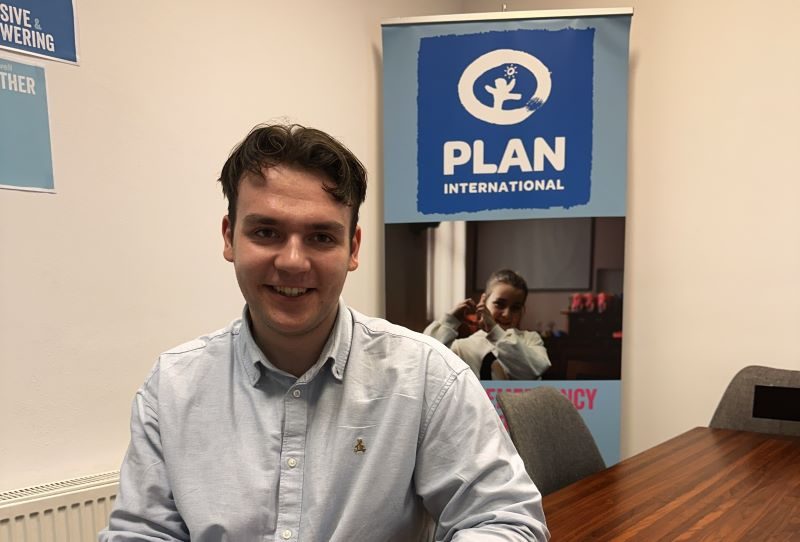Youth worker speaks out for mental health support
Danylo lives in Poland and works with children who have left Ukraine due to the conflict there. He is calling for increased mental health support so young people can process their experiences.

Danylo has seen firsthand the mental health challenges children struggle with.
Danylo, 23, moved to Poland from Ukraine 6 years ago for his studies. He says, “At first, it was hard to adapt to this very new unfamiliar situation.” When the war escalated in 2022, Danylo’s father joined the Armed Forces of Ukraine. “I was very worried for him, so we started talking and calling each other much more often than before.” Due to the conflict and the COVID-19 pandemic, Danylo did not see his father in person for 5 years.
“I, as many other people, had this feeling of survivor’s guilt for the longest time. I am here, but everything is happening there,” Danylo says. This feeling led him to his role at the Unbreakable Ukraine Foundation, where he now works as a Child Safeguarding Officer. “I felt the need to be something, to be helping people,” he explains.
Mental health struggles for children
At Unbreakable Ukraine, Danylo has seen firsthand the mental health challenges children struggle with. “Children and teenagers do not have a choice – they must go where their parents go,” he says. “They might become passive, sad, maybe even depressed. Some even try to run away back to Ukraine.”
“Organisations should focus on normalising the idea that seeking help is okay.”
Although Unbreakable Ukraine provides psychological support to children, there remains a barrier to access, as parents must agree to intervention. “In general, a psychologist starts working with a child only after an accident, and if the parent agrees to it,” Danylo explains. “Few people would come and ask for help on their own.”
Breaking stigmas will increase support
While there has been progress in attitudes of mental health, stigma remains. “Organisations should focus on normalising the idea that seeking help is okay,” Danylo comments. “And people, in general, should support this idea among each other – sharing positive experiences and supporting those who try to find help.”
When asked to look ahead to the future, Danylo says, “My hopes for the future vary from day to day. Today, they are more positive, but just a few days ago, I felt apathetic. But everything will be good. If things are not good now, it only means this is not the end yet.”
Danylo engaged with Plan International for the research project Invisible Wounds: Navigating Mental Health Challenges and Support for Ukrainian Adolescent Boys and Young Men as a youth expert. As a part of the consultation group, he provided feedback on methodology and the research findings summary. His insight, both as a Ukrainian young man and as a youth worker, informed our research approach.
Categories: Emergencies


